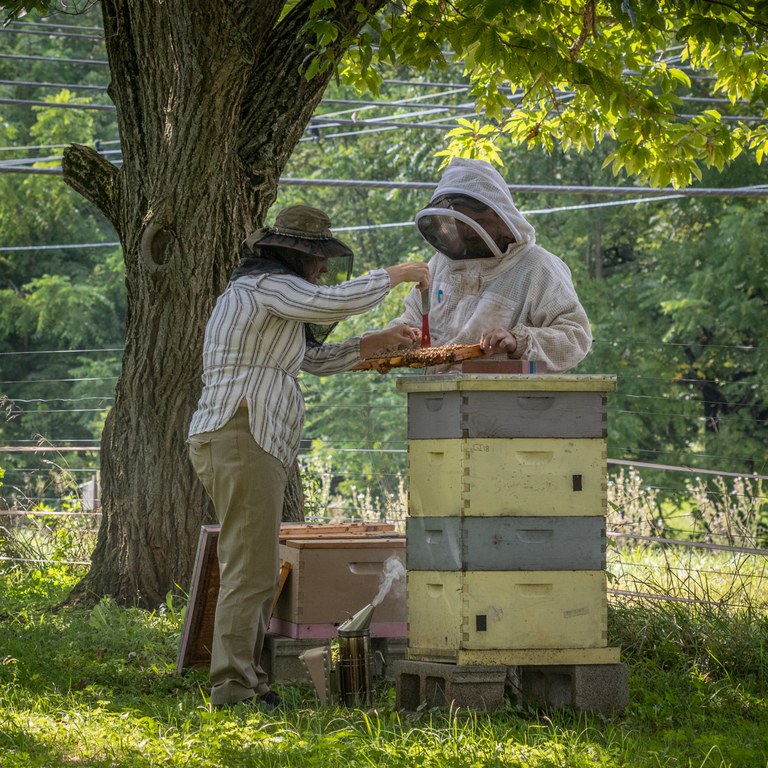Posted: November 12, 2019
This November, beekeepers from across Pennsylvania traveled to State College to discuss the state of the industry, provide training to new beekeepers, and to learn about recent scientific advances in bee research.
Many well-known honey bee scientists shared information, including Dr. Tom Seeley of Cornell University, Les Ecceles of the Ontario Beekeepers' Association, Dr. Jay Evans of the USDA ARS lab in Beltsville, MD, and Dr. Debbie Delaney from University of Delaware. Topics spanned a range of issues affecting beekeepers today, and included novel applications for Varroa mite control, potential new methods for controlling viruses, and the nutritional needs for healthy honey bee colonies.
The weekend meeting closed with a panel discussion where the invited speakers fielded questions from attendees on the theme "Do you want to save the bees?" where habitat and land management considerations for honey bees and wild bees were discussed.
Recent declines in honey bee colonies nationwide has led to a widespread call to action to plant alternative floral resources across public and private lands, including roadways, solar sites, golf course grounds, agricultural production areas, and home gardens. These supplemental plantings can provide more abundant and diverse resources to foraging bees throughout the year, who rely on local nectar and pollen resources to thrive.
Honey bees are just one of over 450 bee species known to reside in Pennsylvania, but the consideration of other species at beekeeping meetings is not typical. However, recent and alarming reports of global insect biomass declines has elicited growing discussion about supporting both managed honey bees and wild bee populations in shared landscapes. There was broad consensus among the panel and attendees that enhancing landscapes to support more flowering plants is a great approach to foster the success of all bees, honey bees and wild bees alike. Beekeepers are in a particularly strategic position to advocate for these florally enhanced landscapes because of the widely acknowledged and essential importance of honey bee colony health in sustaining commercial fruit, seed and nut production across the nation.
So, in short, what can we do to save the bees? The answer is not as straightforward as you might think. Buying local honey and managing a hive of your own is a rewarding and delicious way to support the industry. However, we can broaden our impact on local bee communities by planting native perennials, woody shrubs and flowering trees. Penn State University has developed a pollinator garden certification program, which provides guidelines for bee-friendly gardening practices, and other tips for supporting wild bees.
Managing a honey bee colony can also be very challenging and time consuming, so people may prefer to install solitary bee 'hotels' to enjoy the wild bees that require less investment of time and money.
- Information on how to create habitat and hotels for wild bees.
- The PSBA 2019 meeting program.
- Learn more about what you can do for pollinators by exploring the Pennsylvania Pollinator Protection Plan.
The Penn State Center for Pollinator Research is also in the process of creating educational materials for "Managing Landscapes for Insect Biodiversity" which will help beekeepers, growers, urban planners, conservationists, home and business owners and others develop approaches for supporting more bees and insects in their diverse landscapes, so stay tuned!
By Natalie Boyle


